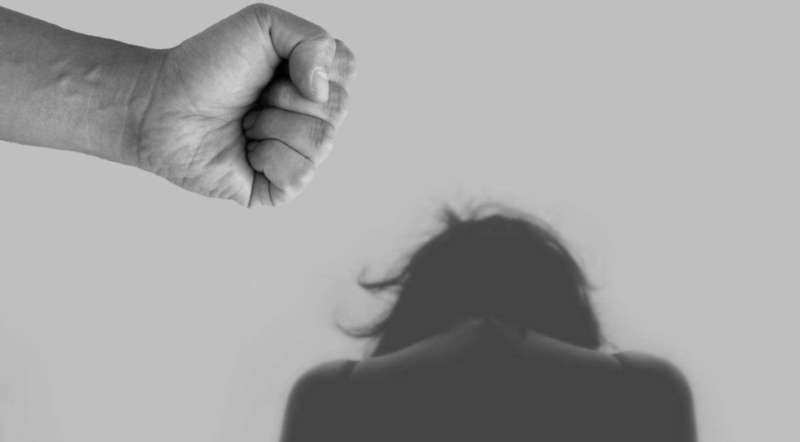With over 22,000 rape cases reported to the police during the last six years, 11 rape cases being registered every day and 13 women murdered in the name of honour, Pakistan is the second worst country in the world in terms of gender equality.
Pakistan has grappled with misogyny for decades. But coronavirus-related lockdowns are exacerbating the problems women face and have resulted in a huge spike in domestic violence incidents with reported cases of slapping, pushing, kicking and other incidents jumped up to 40 percent in some parts of the country.
During the last few months dozens of cases of violence against women have been reported. In September, several cases of harassment, rape, assault and murder of women in the name of honour have been reported.
The alleged incident of gang rape of two teenage girls by seven men in Lahore sparked an outrage over increase in sexual assault cases in Pakistan’s Punjab province.
According to the FIR, two female cousins – aged 18 and 16 – had gone from their residence in Shahdara to Fazal Park in the city on a rickshaw to pick clothes from the house of a tailor. “On their way, some men abducted the girls at gunpoint and took them to a nearby factory and drugged them. The culprits raped the girls throughout the night and fled in the morning,” the FIR says.
Later, the police claimed to have arrested the nominated suspects involved in alleged gang rape case in a factory at Gujjarpura.
In another incident on September 5, a man shot dead his wife and mother-in-law identified as Rifat and Zareena, respectively in Thathi area in the jurisdiction of Gujar Khan police station. Preliminary police investigations revealed that domestic dispute was the primary cause of the incident.
On the other hand, an 18-year-old girl also lost her battle with the life at the Aziz Bhatti Shaheed Teaching Hospital in Gujrat after alleged gang rape. The girl’s family said that she had been murdered as she was administered tranquiliser by the main suspect. Police, however, claimed the girl had committed suicide after failing to convince a person she was alleged to have an affair with to marry her.
Police said they had already arrested the main suspect and added charges of murder to the gang-rape case against three people.
Meanwhile, a man allegedly killed his male cousin and critically injured his sister for "honour" in Karachi's Gulshan-i-Iqbal area.
The police says the suspect attacked Gulnaz Siddique, 20, and Majid Hussain, 22, with a cleaver in Quaid-e-Azam Colony, leaving them critically injured. They were taken to Abbasi Shaheed Hospital where Hussain succumbed to his injuries during treatment.
According to entertainer and critic Ali Gul Pir, what is happening in Pakistan right now is not a good thing as young kids and women being raped and beheaded, the culprit behind these incidents is the ‘man’. “It’s the man doing all these things and we need to take responsibility,” he says.
According to numbers by Women Protection Cell, the institution has received 10,000 complaints by women over harassment and violence in Sindh since the start of 2021. Meanwhile, in Punjab the Women Helpline has received 4,649 complaints in the first half of the current year. And in KPK, the Bolo Women Helpline has not shown any notable differences from the previous years as it has gotten 70 complaints this year so far, while the number was 105 in 2018, 89 in 2019 and 165 in 2020.
On the contrary, the numbers from Ministry of Human Rights show that total complaints made to the National Toll-Free Helpline (1099) are relatively low. As per MoHR data, the national helpline has received 1,655 complaints in 2021 so far, while the number of complaints in 2018 stood at 6,238, and in 2020 it was 1,718. “The cases of violence against women across Pakistan has fallen by 70% in past three years,” the ministry claimed.
Pakistan also continues to rank near the bottom of global gender indices when it comes to educational, political and economic opportunities for women. Some activists cite growing religious extremism as one reason why the crisis is getting worse.
However, government leaders often downplay the scope of the problem. In an interview late last month, Prime Minister Imran Khan said: “You look at the situation in Pakistan even now, you look at the rape cases here, compare it to Western countries, they are minuscule compared to there. Yes, we have our issues, we have certain cultural problems, every nation has that. But that comes with cultural evolution, with education. But as far a women’s dignity goes, respect, I can say after going all over the world, this society gives more respect and dignity to women.”
Pakistan has several laws and policies against various forms of violence. Challenges remain however in implementing these measures. Many women still lack access to free or affordable essential services in sectors such as health, police, justice and social support to ensure their safety, protection and recovery.
“Is the answer embedded in societal learnings? Is it the narrative of ‘power’ and ‘control’ by men over women that is depicted in the media? Is it a lack of entertainment activities and ensuing frustration in our youth that is driving a part of them to such a heinous point?” asks Fiza Farhan, Panel Member, UNHLP on Women’s Economic Empowerment.
“Or the lack of implementation of laws and failure of the justice system is to blame? Or is it simply a question of the lack of awareness of mental health problems that remain undiagnosed and ignored until they unleash themselves in such heinous and unforgivable crimes?”
Experts maintain not enough is being done to prevent violence against women, which is the most challenging but also effective way to eliminate violence in a sustainable way.






